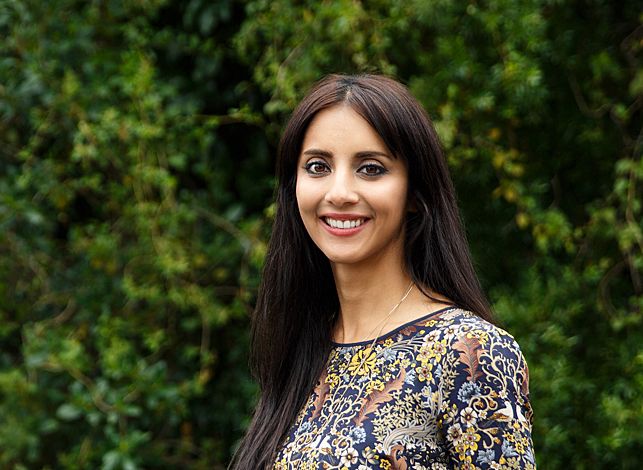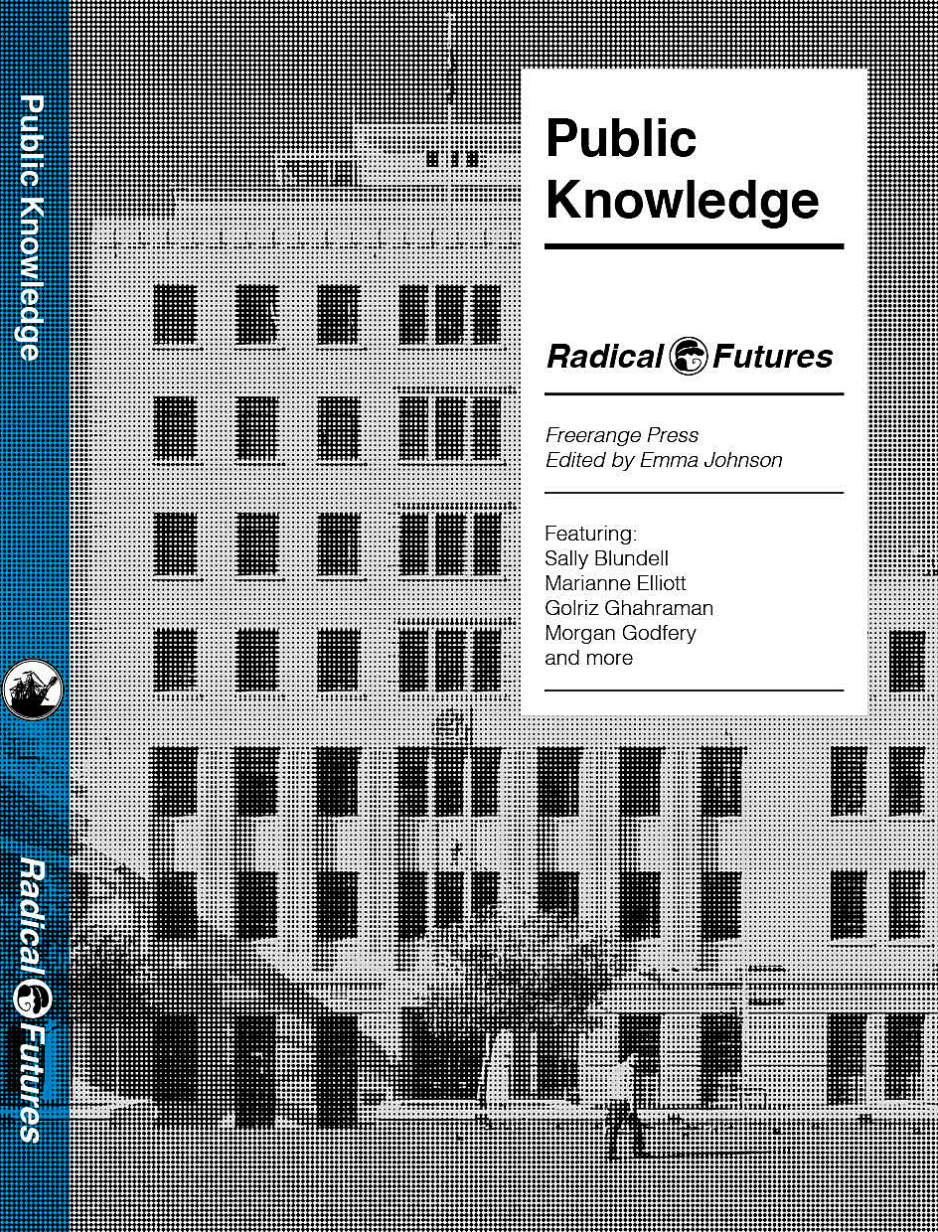Freedom of Speech and Its Limits
Golriz Ghahraman on the urgent need to protect free speech and our other inseparable human rights from the real impact of hate speech.
Iranian-born New Zealand politician and Member of Parliament Golriz Ghahraman on the urgent need to protect free speech and our other inseparable human rights from the real impact of hate speech. An essay from the newly published Public Knowledge from Freerange Press.
Aotearoa New Zealand is a nation that defines itself by the core ideals of equality and fairness, key components in a democracy. That is to say every member of our community is free to challenge dominant social and cultural power structures; those in power are accountable to the people and are open to public critique. Freedom of speech is a cornerstone of these ideals because it allows us to challenge and critique, it underpins minority rights in a democracy and facilitates participation in our public sphere. As with all rights, however, its fulfilment is predicated on access to the full range of civil, political, cultural, social and economic rights. The danger is to assume that any one right in our framework can be fulfilled in isolation – rights are necessarily mutually supportive.
Democracy is not functional without the suite of freedoms that together ensure the free exchange of ideas and criticism of dominant institutions: the right to freedom of information, association and expression. These are the civil and political rights that directly ensure the ability of us all to participate meaningfully in public life as citizens. And free speech is essential to the progress of these rights, because it allows for the exchange of ideas and provides essential protection of systemically marginalised groups by safeguarding their views and campaigns for equality. Free speech underpins the principle of equal access to our public conversations just as meaningful participation in our democracy underpins free speech.
Part of the challenge in coming to terms with the [March 15] attacks will be to acknowledge that hate speech can lead to extremism and violence – that how we speak can have impacts in real life.
How we conduct conversations in public is of increasing importance in light of our shared challenges and the need to work together to address these. Since the Christchurch terrorist attacks, many New Zealanders have started to wonder what sort of country they truly live in and to ask themselves some difficult questions. Are we, in fact, a country filled with equality, fairness and unity, or is there a problem with hate, violence and racism that needs work? Part of the challenge in coming to terms with the attacks will be to acknowledge that hate speech can lead to extremism and violence – that how we speak can have impacts in real life. This will in turn require us to define the right to freedom of speech and where its protections and limitations lie in a truly free and equal society.
The New Zealand Bill of Rights Act affirms our right to freedom of speech, including the right to impart and receive opinions of any kind. As with every right within the human rights law framework, and within that particular Act, restrictions are possible but must meet the criteria of ‘reasonable limits prescribed by law as can be demonstrably justified in a free and democratic society’.1
Herein lies the complex, but well-traversed task of applying human rights law within our democratic framework. Human rights are designed to be universal, inseparable, and must be balanced against one another to ensure that the exercise of any one right does not unreasonably inhibit the exercise of another, or breach public safety or wellbeing.
We need to recognise the government’s role in actively protecting the equal ability of all members of society to contribute to our democracy, without fear of violence or harassment, as a core component of both freedom of expression and freedom from discrimination.
The first of these tenets requires that human rights are applied to us all without discrimination, including moral judgement, based on our basic humanity. We must ensure equal benefit of all rights to all members of society, due to the fundamental principle that every person has equal and innate dignity.
The second is that human rights are inseparable. In New Zealand, our rights framework includes both the New Zealand Bill of Rights Act and the Human Rights Act, and like the international human rights framework, recognises the need to equally affirm all protected rights. This is the oft-forgot reality: human rights cannot be fulfilled as isolated benefits. We cannot pick and choose the rights that benefit us personally. In reality, we cannot have the right to vote without the right to basic education, and we cannot say we are fulfilling the right to education if the children we are teaching are not able to access their right to healthcare or housing. We cannot say we have the right to free speech if some segments of our society are in fear for their mental or physical safety when they attempt to exercise that right. We need to recognise the government’s role in actively protecting the equal ability of all members of society to contribute to our democracy, without fear of violence or harassment, as a core component of both freedom of expression and freedom from discrimination.
So, to measure our ability to enjoy each right, or as the government must, measure our fulfilment of the obligation to provide for those rights, formal legal recognition alone will never be enough. We must measure the whole, taking account of social, economic and cultural rights alongside those better-known civil and political rights, such as the right to free speech. We must also always ensure the recognition of everyone’s equal rights within our society. This requires more than technical equality in law.
Next is the balancing exercise. Here, any limitations to human rights must be kept to the minimum permissible and contained in law. In Western democracies we are most comfortable trimming the fulfilment of economic and social rights for the ‘greater good’ based on the justification of necessary resourcing decisions (most often revenue shortage, caused by other decisions, like tax cuts). If there is no more money in the healthcare coffers, we usually accept that the right to health is limited, for example. Of course these limitations have double the impact on certain groups who already suffer prejudice when accessing public resources. We don’t even see these cuts as part of the balancing exercise of rights being fulfilled and limited to provide for other rights or the collective welfare of society. Likewise, most civil and political rights are necessarily limited on balance to provide for public safety and the fair enjoyment of all rights equally. Thus, the right to freedom of religion cannot amount to the right to demean the rights of non-believers or to challenge women’s rights to equality. It cannot amount to a right to teach any particular religion in public schools.
Likewise free speech is limited within our system, as it is in every modern democracy. Defamation is unlawful, so we recognise that telling untruths to damage another’s reputation is wrong. Harassment, incitement and threatening offences are all unlawful and can amount to criminal offences. Copyright restrictions limit free speech to protect intellectual property. Disorderly behaviour may be committed via speech. So we recognise that it is not okay, in a free and democratic society, to shout obscenities outside schools. All of these legal regulations require identifiable victims and individualised complaints. Where things seem to get more difficult in the context of the public’s understanding of the way limitations to rights may operate is the idea of protection for groups against harmful speech, or what we commonly call ‘hate speech’.
We are not talking about a subjective standard. It has never been the case that hate speech is measured by whether or not anyone was ‘offended’.
We already have laws to protect against hate speech, which are the Human Rights Act and the Harmful Digital Communications Act (HDCA). The former makes it unlawful to ‘publish or distribute threatening, abusive or insulting words likely to excite hostility or bring into contempt’ groups of people on the basis of race or ethnic origins,2 and criminalises the intended incitement of racial disharmony through written or verbal expression.3 The HDCA also criminalises the posting of a digital communication ‘with the intention that it causes harm, judged by the standard of a reasonable person in the position of the victim and if it does cause harm’.4 Since 2016, the New Zealand Human Rights Commission has called for a review of our hate speech law standard to ensure it is fit for purpose and that it protects all groups that are vulnerable to harm.
The standard itself is important. The Human Rights Act draws the line at speech that is capable of inciting hostility against a race or ethnic group.
We are not talking about a subjective standard. In fact it has never been the case that hate speech is measured by whether or not anyone, at the receiving end of otherwise, was ‘offended’. Rather, we are regulating to protect against an objective risk of harm. These protections are essential in a society that values the equal rights of all groups.
It is also important to note that the levels of regulation in the Human Rights Act are focused on civil standards. Speech that leads to criminal sanction does exist, with very high thresholds for application, and includes those situations explained above as well as ‘incitement’ to commit violence or other crime, threatening violence or death. It has been frustrating to see the rise of rhetoric that suggests mere offensive speech would amount to hate speech or ever lead to imprisonment. That kind of misinformation is itself damaging to free and open political debate.
In fact, what we are increasingly learning across the globe right now is that free speech itself is under attack by the proponents of hate speech. Free speech, equality and democracy are easily threatened by the incitement of hatred against targeted groups. Alarmingly, the targeting of women and marginalised groups has come to be a tenet of free speech advocacy, with the effect of silencing those groups and excluding them from the right to free expression, most commonly in online forums. In 2017, Amnesty International highlighted online abuse as a key human rights issue facing women in New Zealand.5 Such abuse causes great harm – research in the United States shows daily racial abuse causes anxiety and trauma akin to that experienced by soldiers in combat.6
We also know that speech, fake news and abuse can lead to very real violence, and now we know, beyond a doubt, that sometimes this even means death. After the immediate response to the Christchurch mosque attacks of shock and affirmation of unity, the rhetoric of ‘this is not us’ gave way to the realisation that among communities of colour, abuse has always been part of life in Aotearoa. Tangata whenua voices rose to remind us of the violence, continued degradation and harm that comes with life under colonisation. Muslim voices rose in grief and desperation to remind authorities that they had reported increasing hate crimes and hate speech for years. Migrants of colour, from every community, know the truth of racism, to different degrees, from terrifying ‘road rage’ incidents and constant online harassment, to regular shouts of ‘Go back to where you came from’ experienced through the generations.
Online hate is causing real world violence and our laws don’t have the tools to respond effectively.
As the ‘First Refugee MP’, I found myself both a member of this devastated effected community and a law maker. I recalled that I had spoken about the racial and religious prejudice I experienced as a political candidate who was known to be a refugee and suspected of being Muslim in my very first speech in our House of Representatives. I had even noted threats of gun violence. I felt compelled to put the House on notice that the political rhetoric of racism and xenophobia used by some of its members contributes to this phenomenon of prejudice. I did that again after the mosque terror attacks. We know from experience that every time a politician decides to scapegoat migrants for political gain, or a media personality derides the Rainbow community, members of those marginalised groups directly feel the effects out there on the street. Online it translates to increased abuse that silences us.
It is increasingly clear, following the Christchurch mosque attacks, that unregulated online platforms are hosting dangerous white supremacist content. Online hate is causing real world violence and our laws don’t have the tools to respond effectively.
The difficulty of drawing these lines demonstrates why it’s important to tackle this head-on.
Just six weeks after the Christchurch attack, on 27 April 2019, a 19-year-old man opened fire at a Passover event at a synagogue in Poway, outside Las Vegas. One person died and three more were injured and hospitalised, including an 8-year-old child. The shooter posted a ‘manifesto’ online that specifically said he was inspired by the 15 March Christchurch mosque attacks, and sought to incite others to undertake further violence targeting Muslims and Jews. On 3 August 2019, a terrorist committed a mass shooting in El Paso, Texas, citing inspiration from the anti-migrant rhetoric in the accused Christchurch shooter’s manifesto.
Indeed, given the global context of online forums in which extremism now grows, the question is how do we contribute to global solutions that ensure protections are effective. It is a relief to have our government leading on the issue of online regulation. The global community must ask how it can best respond to the growth of online platforms that promote abuse against women and minority groups, spread mistruth and inspire violence. We already restrict websites that host child pornography, we restrict websites that repeatedly violate copyright; we must develop tools to regulate content that threatens the rights and safety of vulnerable groups.
Outsourcing regulation to private businesses is not a solution.
It’s vital that the public is involved in a conversation about what speech meets the threshold for being restricted, and what mix of enforcement tools should be used (such as civil remedies through the Human Rights Tribunal, as with our current protections against discrimination, and take-down orders for unlawful online content, as in Germany). The difficulty of drawing these lines demonstrates why it’s important to tackle this head-on. After Christchurch, some internet service providers decided to block websites with which the terrorist was associated. This is an understandable step – however, the rule of law requires that we promote legal clarity and certainty, especially where there are restrictions on freedoms. Outsourcing regulation to private businesses is not a solution.
Everyone, every person of every race, gender and religion, has a huge interest in ensuring harmful and abusive content is appropriately regulated. What is at stake is our public knowledge framework – our shared right to exchange ideas, share and receive information in good faith, to change our minds based on that information or to challenge it based on our own lived experiences. The false idea that any right would ever give us free reign to make others unsafe – with abuse, lies and threats – is undermining freedom of expression itself. If we can’t rely on information or access it safely as equals, then the fundamental fabric of our communities is at stake and democracy itself is threatened. The conversation about hate speech is imperative to save freedom of expression from what would destroy it.
We must be brave as we shine a light into the shadows of prejudice and hatred that we now know exist in pockets of our society. We must weave the incredible outpouring of love for the victims of the Christchurch terror attacks into the enduring fabric of our communities.
Notes
1 ‘Justified Limitations’, New Zealand Bill of Rights Act 1990, New Zealand Legislation, accessed July 20, 2019.
2 See Section 61 of the Human Rights Act and Tracey Cormack, ‘Freedom of Speech vs Hate Speech’, New Zealand Law Society, April 4, 2010.
3 ‘Inciting Racial Disharmony’, Human Rights Act 1993, Section 131, accessed September 20, 2019.
4 Tracey Cormack, ‘Freedom of Speech vs Hate Speech’, New Zealand Law Society, April 4, 2010.
5 Amnesty International, ‘Amnesty Reveals Alarming Impact of Online Abuse Against Women’, November 20, 2017.
6 See Dr William Smith’s work on ‘racial battle fatigue’.
This essay is from Public Knowledge, the newly published second volume in the Radical Futures series from Freerange Press, also featuring Morgan Godfery, Sally Blundell, Nicola Gaston, Lana Lopesi and many more. Read more and buy it here.


